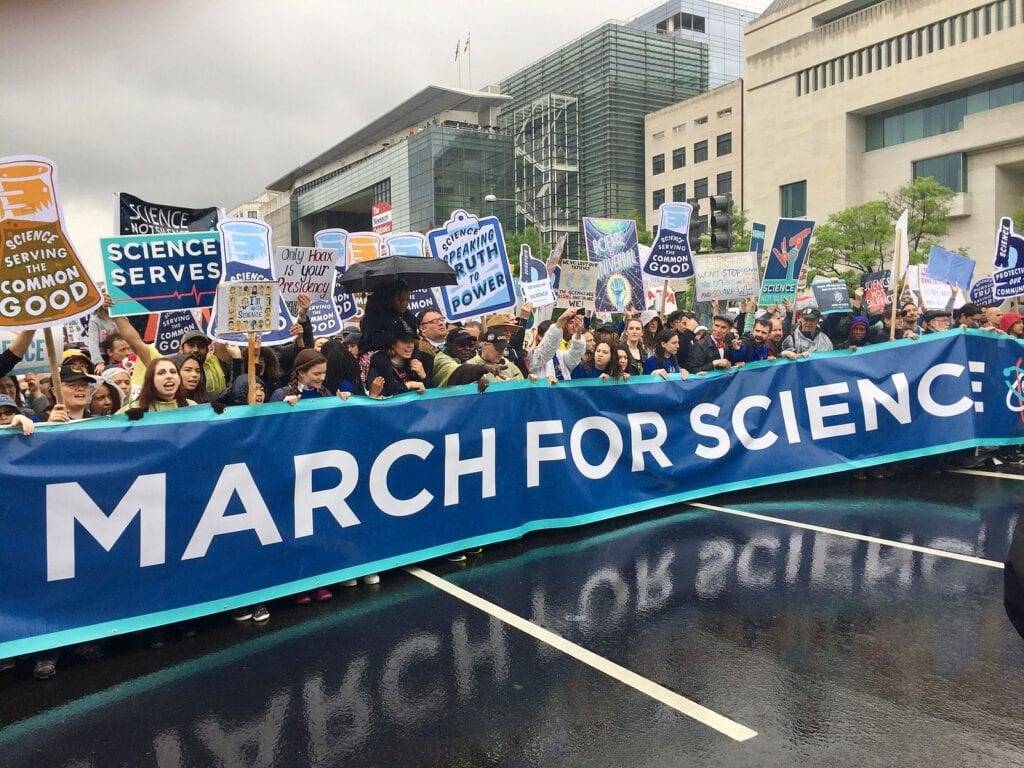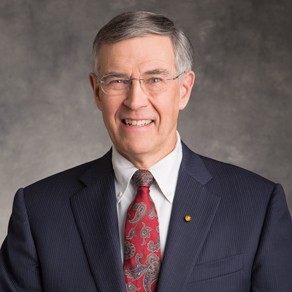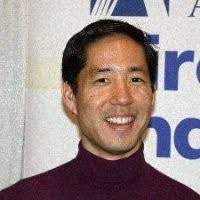CONFERENCE ON SCIENCE'S JOURNEY 2021
October 6th, 2020
1:00 - 4:00 pm EDT
Hosted Virtually over Zoom Webinars

Science faces unprecedented times. We are in the midst of the COVID-19 pandemic and are grappling with a serious climate crisis. The role of science is more important now than ever but its future is clouded by uncertainty. What is science’s path forward in 2021? Conference speakers and delegates explored science’s dynamic role in public policy, how the scientific community’s advice is vital to America’s political leadership, and scientific priorities for 2021.
Speakers

Rush Holt Jr. is a scientist and politician who served as the U.S. representative for New Jersey’s 12th congressional district from 1999 to 2015. Prior to his election to Congress, he worked as a professor of physics and public policy at Swarthmore College and as the assistant director of the Princeton Plasma Physics Laboratory. After his retirement from Congress, he became chief executive officer of the American Association for the Advancement of Science and executive publisher of the Science family of journals from 2015 to 2019. He provided leadership and support for the March for Science.
Holt received his B.S. from Carleton College and his M.S. and Ph.D. from New York University.

Kei Koizumi is an independent consultant on science policy. Previously, he was Senior Advisor for Science Policy at the American Association for the Advancement of Science, before which he worked in the White House Office of Science and Technology Policy as Assistant Director for Federal Research and Development and Senior Advisor for the Director of the National Science and Technology Council for eight years. In 2008-2009, he served on the Technology, Innovation, and Government Reform Policy Working Group on the Obama-Biden Transition Team. He also assisted with the transition process in 2016.
Koizumi received his B.A. from Boston University and his M.A. from The George Washington University.

Gretchen Goldman is the research director for the Center for Science and Democracy at the Union of Concerned Scientists. In her role, Goldman leads research efforts on the role of science in public policy, focusing on topics ranging from scientific integrity in government decision-making, to political interference in science-based standards on hydraulic fracturing, climate change, and chemicals. She came to UCS from the Georgia Institute of Technology, where she was a postdoctoral research fellow working on statistical modeling of urban air pollution for use in epidemiologic studies of acute human health effects.
Goldman received her B.S. from Cornell University and her M.S. and Ph.D. from the Georgia Institute of Technology.
*click name for biographical information
Program
1:00 – 1:05 pm
Welcome and Opening Remarks
Robert Day
Executive Director
Renewable Natural Resources Foundation
1:05 - 1:35 pm
Science's Essential Role in Our Democracy
Science is a way of asking questions so that they can be answered empirically and verifiably. It is a way of understanding how things are and how they work. This way of thinking forms the foundation of policymaking in a functioning democracy. It is not the only ingredient, but it is an essential one. Too often, our politics are detached from scientific thinking. The scientific community has recently resisted the weakening of science in government decision making. However, scientists must do more than advocate for science. They must promote scientific thinking among the nation’s citizens. Our speaker reflected on the evolving sense of social responsibility in the scientific community and made a collective call to advocate on behalf of science-based thinking.
Rush Holt Jr. is a scientist and politician who served as the U.S. representative for New Jersey’s 12th congressional district from 1999 to 2015. Prior to his election to Congress, he worked as a professor of physics and public policy at Swarthmore College and as the assistant director of the Princeton Plasma Physics Laboratory. After his retirement from Congress, he became chief executive officer of the American Association for the Advancement of Science and executive publisher of the Science family of journals from 2015 to 2019. He provided leadership and support for the March for Science.
Holt received his B.S. from Carleton College and his M.S. and Ph.D. from New York University.
Former CEO (2015-2019)
American Association for the Advancement of Science
Washington, D.C.
1:35 - 1:55 pm
Q&A
1:55 - 2:25 pm
The Scientific Community's Role in Presidential Transitions
Science is a crucial tool for America’s political leadership. How science is used differs from administration to administration but the willingness of the scientific community to engage with policymakers has always been steadfast. The scientific community can play an especially important role in times of political transition, advising and advocating to newly elected and incumbent members of congress and new administrations in the White House. This advisory role can help lay the foundation for effective policymaking that makes full use of accurate scientific information. The transition process is already underway. Our speaker provided a historical perspective on how the scientific community typically responds during transitions and give insights about how the transition process works. He has three important take-away messages!
Kei Koizumi is an independent consultant on science policy. Previously, he was Senior Advisor for Science Policy at the American Association for the Advancement of Science, before which he worked in the White House Office of Science and Technology Policy as Assistant Director for Federal Research and Development and Senior Advisor for the Director of the National Science and Technology Council for eight years. In 2008-2009, he served on the Technology, Innovation, and Government Reform Policy Working Group on the Obama-Biden Transition Team. He also assisted with the transition process in 2016.
Koizumi received his B.A. from Boston University and his M.A. from The George Washington University.
Former Senior Advisor for Science Policy
AAAS
Shanghai, China
2:25 - 2:45 pm
Q&A
2:45 - 3:15
Scientific Priorities Moving Forward
Scientific priorities for 2021 will require especially critical analysis. Many environmental regulations and science research protections have been adversely altered and will need to be restored. Primary issues include: promoting science-based decision making; strengthening scientific integrity; enforcing transparency in decision-making; addressing conflicts of interest; safeguarding government scientists; fostering public participation in decision-making; and protecting democratic processes. Our speaker examined each of these issues and provided a blueprint for moving forward.
Gretchen Goldman is the research director for the Center for Science and Democracy at the Union of Concerned Scientists. In her role, Goldman leads research efforts on the role of science in public policy, focusing on topics ranging from scientific integrity in government decision-making, to political interference in science-based standards on hydraulic fracturing, climate change, and chemicals. She came to UCS from the Georgia Institute of Technology, where she was a postdoctoral research fellow working on statistical modeling of urban air pollution for use in epidemiologic studies of acute human health effects.
Goldman received her B.S. from Cornell University and her M.S. and Ph.D. from the Georgia Institute of Technology.
Research Director, Center for Science and Democracy
Union of Concerned Scientists
Washington, D.C.
3:15 - 3:35 pm
Q&A
3:35 - 3:40 pm
Closing Remarks
Robert Day
Executive Director
Renewable Natural Resources Foundation
Additional Resources
The Silencing Science Tracker is a joint initiative of the Sabin Center for Climate Change Law and the Climate Science Legal Defense Fund. It tracks attempts to restrict or prohibit scientific research, education or discussion, or the publication of scientific information, since the November 2016 election. The tracker can be found here.
During Gretchen Goldman's presentation, she referenced a series of resources that the Union of Concerned Scientists has produced defining priorities for repairing science's role in public policy. They included:
Scientific Integrity in Federal Policymaking Under Past and Present Administrations
Science Under Trump: Voices of Scientists across 16 Federal Agencies
Presidential Recommendations for 2020: A Blueprint for Defending Science and Protecting the Public
Conference Program Committee
Chair:
John E. Durrant, RNRF Chairman; Sr. Managing Director, Engineering & Lifelong Learning, American Society of Civil Engineers
Members:
Robert Day, RNRF Executive Director
Dresden Farrand, RNRF Board Member; Executive Vice President, American Water Resources Association
Sarah Gerould, RNRF Board Member; Society of Environmental Toxicology and Chemistry
Lu Gay Lanier, RNRF Board Member; American Society of Landscape Architects Fund
Andy Miller, RNRF Board Member; Policy Fellow, AMS Policy Program, American Meteorological Society
Raj Pandya, RNRF Board Member; Director, Thriving Earth Exchange, American Geophysical Union
Howard Rosen, RNRF Board Member; Public Interest Member
Barry Starke, RNRF Board Member; Public Interest Member
Kasey White, RNRF Board Member; Director of Geoscience Policy, Geological Society of America
RNRF Staff Liaisons:
Madeline Voitier, Former Senior Program Manager
Stephen Yaeger, Program Manager
